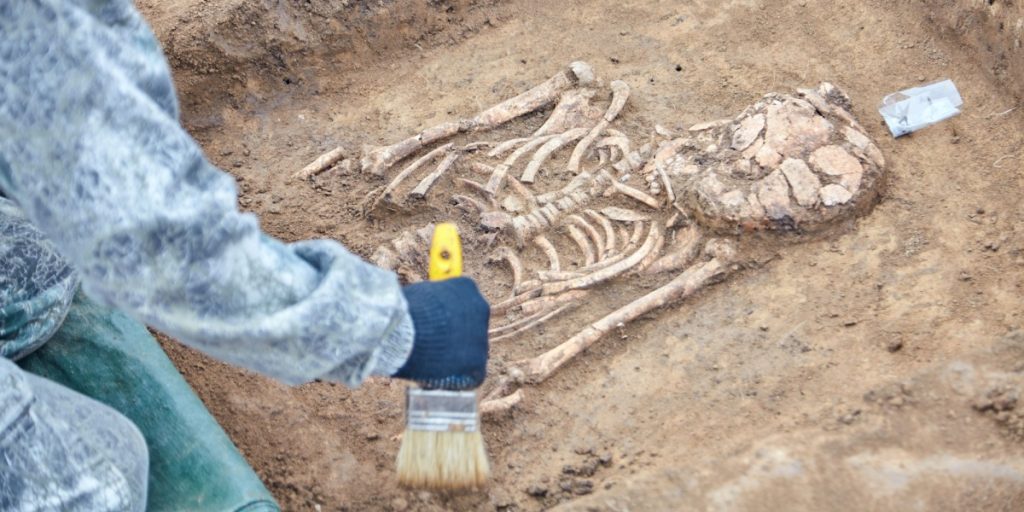The deceased was probably a person of high social rank, according to archaeologists.
Others are reading now
Archaeologists in Eichendorf, Germany, have made a remarkable discovery — a 6,800-year-old skeleton with numerous grave goods, hinting at the individual’s high social status.
Florian Eibl, the district archaeologist, announced this discovery on Wednesday.
The skeleton, referred to as the “Exinger,” was found in the Exing district during routine checks before construction work. The unique attributes of the grave and the variety of grave goods suggest the deceased held a prominent societal position, possibly similar to that of an early mayor.
Also read
Special Burial Practices Signifying Status
The Exinger’s burial is notable not only for its age but also for its form—a body grave, which is unusual for that period, according to Eibl. Typically, burials from that era were conducted differently.
The grave goods, including items that symbolize status and utility, indicate that the Exinger was likely a mature male who earned his high status through his actions and merits, not inheritance.
Among the grave goods is a bag adorned with halves of a boar’s tooth, likely containing a blade and fire-making tools. The boar’s tooth, Eibl explained, symbolized status and might reflect the peril involved in hunting with the period’s rudimentary weapons.
Archaeologists found several vessels around the skeleton’s head, which was buried in a crouching position. While these vessels have not yet been thoroughly examined, researchers hope they may still contain traces of their original contents.
A personal drinking cup was placed in front of the skeleton’s face, and stone blades were found in front and behind the body. The placement of the blades, particularly those far behind, suggests they were not used as weapons against the person.
Additionally, a bowl containing graphite, used as a dye at the time, was found above the skeleton. Eibl speculates that this might have been used in the burial rites, possibly to mark the body or the burial site.


